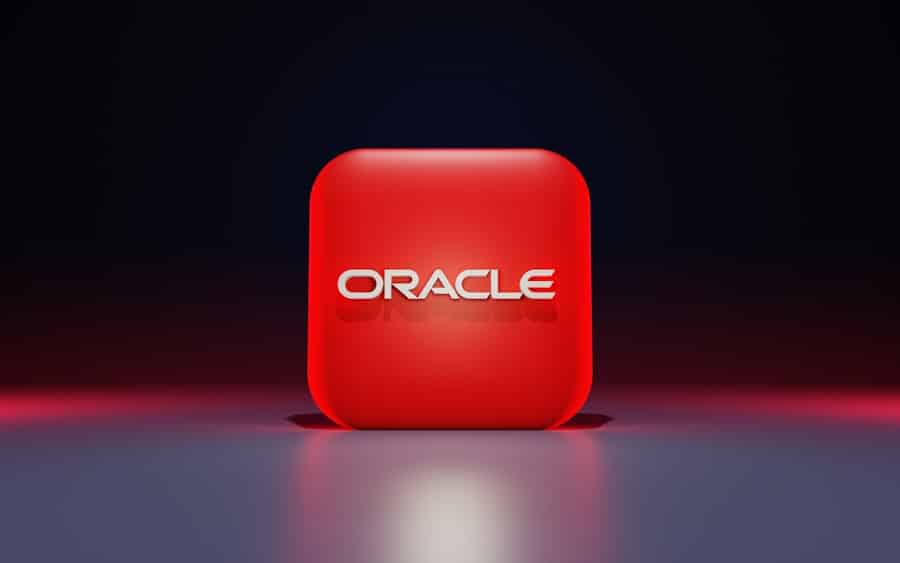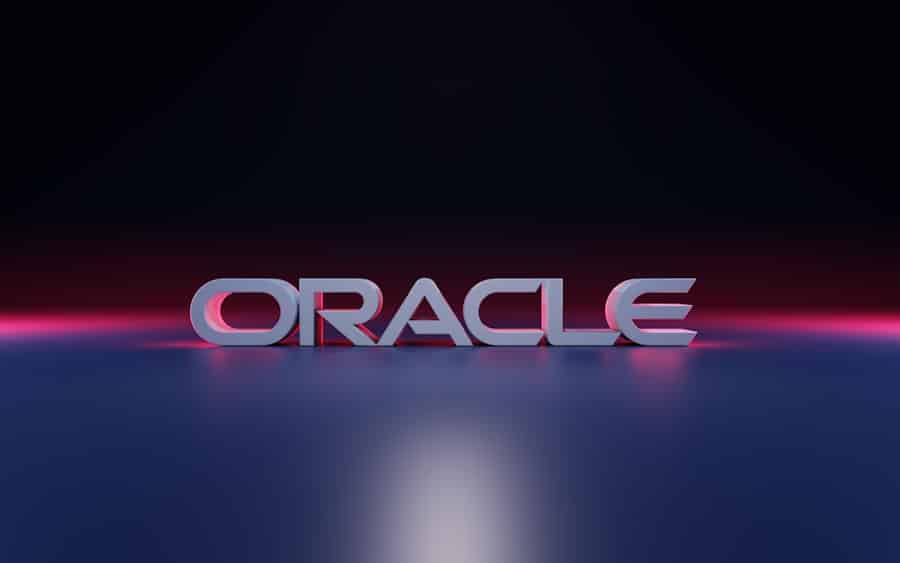In the rapidly evolving landscape of blockchain technology, oracles have emerged as a critical component that bridges the gap between the decentralized world of blockchain and the external data sources that influence smart contracts. At its core, an oracle is a service that provides real-world data to blockchain applications, enabling them to interact with information outside their native environment. This capability is essential because smart contracts, which are self-executing contracts with the terms of the agreement directly written into code, require accurate and timely data to function effectively.
Without oracles, smart contracts would be limited to the information contained within the blockchain itself, significantly restricting their potential applications. The significance of oracles can be illustrated through various use cases across different industries. For instance, in the financial sector, decentralized finance (DeFi) platforms rely on oracles to obtain real-time price feeds for assets, ensuring that trades and transactions are executed based on accurate market data.
Similarly, in supply chain management, oracles can provide information about the status of goods in transit, allowing smart contracts to trigger payments or other actions based on specific conditions being met. As blockchain technology continues to mature, the role of oracles will only become more pronounced, highlighting their importance in creating a seamless connection between on-chain and off-chain data.
Key Takeaways
- Oracles play a crucial role in connecting external data to smart contracts in blockchain technology.
- There are different types of oracles, including software oracles, hardware oracles, and consensus oracles, each with its own unique functions and characteristics.
- Reliable oracles are essential for ensuring the accuracy and security of smart contracts, as they provide the necessary data for the execution of these contracts.
- However, there are challenges and risks associated with oracles, such as data manipulation, security vulnerabilities, and potential centralization.
- Best practices for implementing oracles in blockchain include using multiple oracles for data verification, implementing secure communication protocols, and regularly auditing and updating the oracles.
How Oracles Connect Data to Smart Contracts
Oracles serve as intermediaries that facilitate communication between smart contracts and external data sources. They can be thought of as a bridge that allows blockchain applications to access real-world information, which is crucial for executing contracts based on conditions that depend on external events. The process typically involves an oracle fetching data from various sources, such as APIs, databases, or even IoT devices, and then relaying that information to the smart contract on the blockchain.
This interaction is essential for enabling a wide range of functionalities, from automated trading strategies to insurance payouts based on weather conditions.
Some oracles are centralized, meaning they rely on a single source of truth for data retrieval.
While this approach can be efficient and straightforward, it introduces a single point of failure and raises concerns about trust and reliability. On the other hand, decentralized oracles aggregate data from multiple sources to provide a more robust and tamper-resistant solution. By utilizing consensus mechanisms among various data providers, decentralized oracles can enhance the accuracy and reliability of the information they deliver to smart contracts.
This distinction between centralized and decentralized oracles is crucial for developers and businesses looking to implement solutions that require external data.
Types of Oracles in Blockchain

The landscape of oracles is diverse, with several types designed to cater to different needs and use cases within the blockchain ecosystem. Broadly speaking, oracles can be categorized into three main types: inbound oracles, outbound oracles, and cross-chain oracles. Inbound oracles are responsible for bringing external data into the blockchain environment.
They fetch information from various sources and deliver it to smart contracts, enabling them to execute based on real-world events. For example, an inbound oracle might provide weather data to a smart contract that governs crop insurance payouts. Outbound oracles, conversely, facilitate communication from the blockchain to external systems.
They allow smart contracts to send data or trigger actions outside the blockchain environment.
For instance, an outbound oracle could notify a payment processor when a smart contract has been fulfilled, prompting the release of funds.
Cross-chain oracles represent another innovative category that enables interoperability between different blockchain networks. As the blockchain ecosystem expands, the need for seamless communication between disparate chains has become increasingly important. Cross-chain oracles facilitate this interaction by providing a mechanism for transferring data and value across different blockchains.
This capability is essential for creating more complex decentralized applications (dApps) that leverage multiple blockchain platforms simultaneously.
The Importance of Reliable Oracles in Blockchain
The reliability of oracles is paramount in ensuring the integrity and functionality of smart contracts. Since these contracts often govern significant financial transactions or critical business processes, any inaccuracies in the data provided by an oracle can lead to severe consequences. For instance, if a price oracle delivers incorrect asset valuations, it could result in substantial financial losses for traders relying on that information for their transactions.
Therefore, ensuring that oracles are trustworthy and resilient against manipulation is essential for maintaining user confidence in blockchain applications. Moreover, the importance of reliable oracles extends beyond individual transactions; it also impacts the broader adoption of blockchain technology across various industries. Businesses are more likely to embrace blockchain solutions if they can trust the data inputs that drive their operations.
This trust is built through rigorous testing and validation processes for oracles, as well as through the use of decentralized models that minimize reliance on single data sources. By fostering an environment where reliable oracles are standard practice, the blockchain ecosystem can encourage innovation and drive further adoption across sectors such as finance, healthcare, and supply chain management.
Challenges and Risks Associated with Oracles in Blockchain
Despite their critical role in connecting smart contracts with real-world data, oracles face several challenges and risks that can undermine their effectiveness. One significant challenge is the issue of data accuracy and integrity. Since many oracles rely on external sources for information, they are susceptible to inaccuracies stemming from those sources.
If an oracle fetches erroneous data due to a faulty API or a compromised source, it can lead to incorrect contract execution and financial losses. Another risk associated with oracles is security vulnerabilities. Centralized oracles are particularly prone to attacks since they represent a single point of failure.
If an attacker gains control over a centralized oracle, they can manipulate the data being fed into smart contracts, potentially leading to fraudulent activities. Decentralized oracles mitigate this risk by aggregating data from multiple sources; however, they are not immune to attacks either. For example, if a majority of data providers collude or if there is a flaw in the consensus mechanism used by a decentralized oracle, it could still result in compromised data integrity.
Additionally, regulatory challenges pose another layer of complexity for oracle implementation in blockchain applications. As governments around the world begin to scrutinize blockchain technology more closely, there may be legal implications surrounding how oracles operate and what data they can access. Compliance with regulations regarding data privacy and security will be essential for businesses looking to integrate oracles into their blockchain solutions.
Best Practices for Implementing Oracles in Blockchain

To effectively implement oracles within blockchain applications while mitigating associated risks, developers should adhere to several best practices. First and foremost is the selection of reliable data sources. When choosing an oracle service provider, it is crucial to evaluate their track record regarding data accuracy and reliability.
Utilizing multiple data sources can also enhance resilience against inaccuracies; by aggregating information from various providers, developers can create a more robust system that minimizes reliance on any single source. Another best practice involves implementing rigorous testing protocols for oracle functionality before deployment. This includes stress testing under various scenarios to ensure that the oracle can handle unexpected conditions without compromising data integrity.
Additionally, developers should consider incorporating fallback mechanisms within their smart contracts that allow them to revert to alternative data sources if an oracle fails to deliver timely information. Security measures should also be prioritized when implementing oracles in blockchain applications. For decentralized oracles, employing strong consensus mechanisms can help ensure that only accurate data is accepted by the network.
Furthermore, regular audits of both the oracle infrastructure and its underlying code can help identify vulnerabilities before they can be exploited by malicious actors.
Future Developments in Oracles and Blockchain Technology
As blockchain technology continues to evolve, so too will the capabilities and functionalities of oracles. One promising area of development is the integration of artificial intelligence (AI) with oracle systems. By leveraging AI algorithms to analyze vast amounts of data from multiple sources, future oracles could provide even more accurate predictions and insights for smart contracts.
This could enhance decision-making processes across various industries by enabling real-time adjustments based on dynamic market conditions. Another potential advancement lies in improving interoperability between different blockchain networks through enhanced cross-chain oracle solutions. As more organizations adopt multiple blockchains for different applications, seamless communication between these networks will become increasingly vital.
Future developments may focus on creating standardized protocols that facilitate easier integration of cross-chain oracles into existing systems. Moreover, as regulatory frameworks surrounding blockchain technology become clearer globally, we may see an increase in compliance-focused oracle solutions designed specifically to meet legal requirements regarding data usage and privacy. These developments could pave the way for broader adoption of blockchain technology across regulated industries such as finance and healthcare.
The Impact of Oracles on the Future of Smart Contracts
Oracles play an indispensable role in shaping the future landscape of smart contracts by providing essential connections between decentralized applications and real-world data sources. Their ability to facilitate accurate information flow enables a wide range of functionalities across various sectors while enhancing trust in automated processes governed by code. As advancements continue within both oracle technology and blockchain ecosystems at large—coupled with ongoing efforts toward improving reliability and security—the potential applications for smart contracts will expand exponentially.
The impact of reliable oracle solutions cannot be overstated; they serve as foundational elements that empower businesses to innovate confidently within decentralized environments while minimizing risks associated with inaccurate data inputs. As we look ahead toward an increasingly interconnected digital economy driven by blockchain technology—where transparency meets efficiency—the importance of robust oracle systems will only grow more pronounced in unlocking new possibilities for automation across industries worldwide.
If you are interested in the latest technology trends, you may also want to check out this article on conversational commerce. It explores how businesses are leveraging chatbots and messaging apps to enhance customer interactions and drive sales. Just like the role of oracles in blockchain connects data to smart contracts, conversational commerce is revolutionizing the way companies engage with their customers in the digital age.
FAQs
What is an oracle in the context of blockchain?
An oracle in the context of blockchain refers to a third-party service that provides smart contracts with external information. This information can include real-world data such as market prices, weather conditions, or sports scores.
How do oracles connect data to smart contracts?
Oracles connect data to smart contracts by retrieving and verifying external information from off-chain sources. Once the data is verified, the oracle feeds it into the smart contract, allowing the contract to execute based on real-world events.
Why are oracles important in blockchain technology?
Oracles are important in blockchain technology because they enable smart contracts to interact with the outside world. This functionality is crucial for a wide range of decentralized applications, including decentralized finance (DeFi), supply chain management, and insurance.
What are the different types of oracles?
There are two main types of oracles: software oracles and hardware oracles. Software oracles rely on data from digital sources, while hardware oracles connect to physical devices to retrieve information.
What are the potential challenges or risks associated with using oracles in blockchain?
Some potential challenges or risks associated with using oracles in blockchain include data manipulation, security vulnerabilities, and reliance on centralized sources of information. These factors can introduce trust issues and compromise the integrity of smart contract execution.

